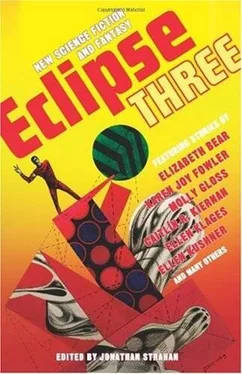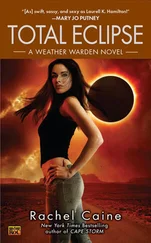You hope it's only the next morning. When you lift your head, you realize that you're not in the cave any longer.
You lie on a plywood floor before the soot-stained brick pad that supports a cast-iron woodstove. The walls are peeling metal and seem very close to either side and from about waist-height they're mostly made of rows of windows, as if you were in an airplane fuselage. The windows are covered in a layer of transparent plastic, condensation misting the enclosed side and turning to frost on the metal-framed windows.
That woodstove ripples with heat. Radiant energy flattens against your face, picking moisture from your cheeks and eyelids. You turn from it and try to find the strength to roll away, but your arms won't move you, so you pull the edge of the sleeping bag up as a shield, instead and assess the damage.
Your skin burns everywhere she kissed you, swollen in chilblains red as lipstick prints. They smart when you press them, though your fingertips are cold enough that all you can feel is how much they hurt when you touch anything.
The plywood shudders with footsteps, and this time the adrenaline gives you enough energy to sit. Half-sit, anyway, slumped forward on locked elbows with your hair draggled in your eyes like a shipwrecked survivor pushing herself up from the surf. You feel castaway, cast-off. Seawracked and adrift, or maybe fetched up hard against the rocks and dashed there.
"Oh, good," a voice says, too loud. "You lived. Don't bother talking until you can look at me. Save your strength, 'cause I can't hear you."
You get your head up as he squats down, scarred boots laced only partway and the ragged cuffs of his dungarees spattered with salt and mud and (mostly) sawdust. He's a white guy, hair gray and thinning on top and not long. His cheeks were clean-shaven about three days ago: now silver hairs sparkle against dull skin. He's not a big guy and he's not a young guy, and even though he's dirty and ragged and you're naked on the floor under a pile of rags he doesn't make you scared. You wonder if you'll ever feel scared again, after the cave, after the mermaid inside it.
He tugs the sleeping bag up over your shoulders with a rough-skinned hand and steps back. "I'll get you some coffee," he says. "And some clothes."
By the time he comes back with a flannel shirt, t-shirt, cardigan, and too-big men's jeans washed soft, you've managed to edge away from the crisping heat of the woodstove and get yourself wedged into a ladderback chair. An enamel pan sits atop the stove, steam rising from the water that must be simmering inside, but you can't tell that it's making any difference to the humidity. A few steps away from the stove, you can feel the baffling cold seeping through the metal walls of what you now realize is an ancient schoolbus, probably up on blocks and definitely not in any condition to ever go anywhere again, because from here you can see the holes in the firewall where the steering column and gearshift used to go.
He leaves the clothes and turns his back, except you're not sure you can get the pants on by yourself. You'd call him, but you don't know his name, and after you say "Hey!" a couple of times you remember what he said about not being able to hear, and how loud he spoke.
Well, you made it into the chair. You can probably make it into the trousers.
With a little help from the chair you do. You're pulling the flannel shirt over the t-shirt when he comes back with a big blue plastic travel mug with a gas station logo on the side. It steams when he gives it over. Some of the warmth within seeps through the empty spaces between its inner and outer walls and stings your hands, but you cup it close anyway. It's white, which makes it cool enough to drink, and you don't stop until you've drained it to the bottom. It tastes like oily vanilla creamer and boiled coffee grounds and enough sugar to make your teeth ache and leave grit on your tongue and at the bottom of the cup, which right this second makes it the best thing you've ever tasted.
When you hand the cup back to the man, he fills it up from a thermos that sits on a knocked-together wood table along one side of the schoolbus. He must sleep underneath it, because a cot mattress is just visible behind the curtains tacked up to its underside. The second mug of coffee you cradle between your palms and savor, and when he's looking at your mouth you say, "Thank you."
Your voice startles you a little. Maybe it's the cold stopping up your ears, but it sounds plummier and more resonant than it should.
"T'ain't nothing," he says, and grins. "You're not the first one to meet the girl in the cave and come off worse-and better-for it." He touches his ear. "I can't hear her singing anymore, but I keep an eye out for anybody else who does."
"Are there a lot of us?"
He shrugs. "Every five, ten years or so. It's been a while since the last one. You'll probably more or less recover, given time."
"More or less?" You swallow more coffee, scrub the sweet sand of sugar across your palate with your tongue.
"Don't expect you won't be changed. By the way, I'm Marty."
"I'm Missy," you say, which is what your mom called you when she wasn't mad. You nerve yourself, as if bracing against some cold that's inside you, and say, "She's under my skin."
"She gets there," he says. "What are you going to do about it?"
You shrug. He hands you a pair of wool socks-your own socks, washed out and damp still.
"I've got some work," he says. "You're welcome to stay in here until you feel well enough to go. There's soup in the cupboard. You can heat it on the stove if you want."
He points, tins in a series of stacked Guida crates. You see Progresso lentil, Campbell 's clam chowder. Boxes of crackers stuffed inside plastic freezer bags so the mice don't smell them.
"Thanks," you say. "I'm good. What kind of work?"
"Excuse me?"
"Your work," you say. "What kind of work do you do?"
"Oh." He stares down at his hands. "I make dulcimers and stuff."
"You're a musician?" He's not looking at you when you say it, though, and you have to repeat.
He shakes his head. "Luthier," he says. His eyes slide shyly aside. "I make instruments for other people. Do you want to see my shop?"
You put on your boots, which he must have rescued from the cave also. When you get outside in the cold, you realize that the schoolbus is parked in a clearing in the midst of a winter-bare multiflora rose and blackberry bramble, the canes bent and the sprays of withered crimson hips, no bigger than the head of a big sewing pin, bowed under tiny hats of snow. Beyond them, reached by tunnel-like paths that Marty must clear with a machete during the growing season, lies a ring of trees-the border of the woods, with its cave and its mermaid.
Other than the cold and the thorns, the first thing you notice when you step outside is the hum of a diesel generator, isolated off to the side in a little tin shack, its feet propped off the ground on cinder blocks. Marty's "shop" proves to be a wooden shed, also on blocks from what you can see through the snow, up against the side of the schoolbus so the bus serves as a windbreak. On the far side is the rusted out corpse of a DeSoto, the hood tatted to lacework by years.
The shed's other three walls have hay bales stacked against them, which might make you worry about fire, but the hay looks so wet it wouldn't burn if you soaked it in gasoline.
When he opens the door, heat comes out like a sticky wall. You hear the crackle of a woodstove in here too, and smell sharp sweet frankincense. A handful of resin smokes on the iron stove lid, giving the sixteen-by-sixteen room funereal or cathedral airs. Sawdust covers the floor inside, worktables lining every wall, lathes and sanders greased and dirty. Shaker pegboards circle eighteen inches below the topwall, unfinished instruments dangling by their necks. Dulcimers, yes. Mandolins, basses, guitars. A single white unsanded fiddle hanging from a neck like the wrung neck of a swan, like the curled tendril of a fern.
Читать дальше











